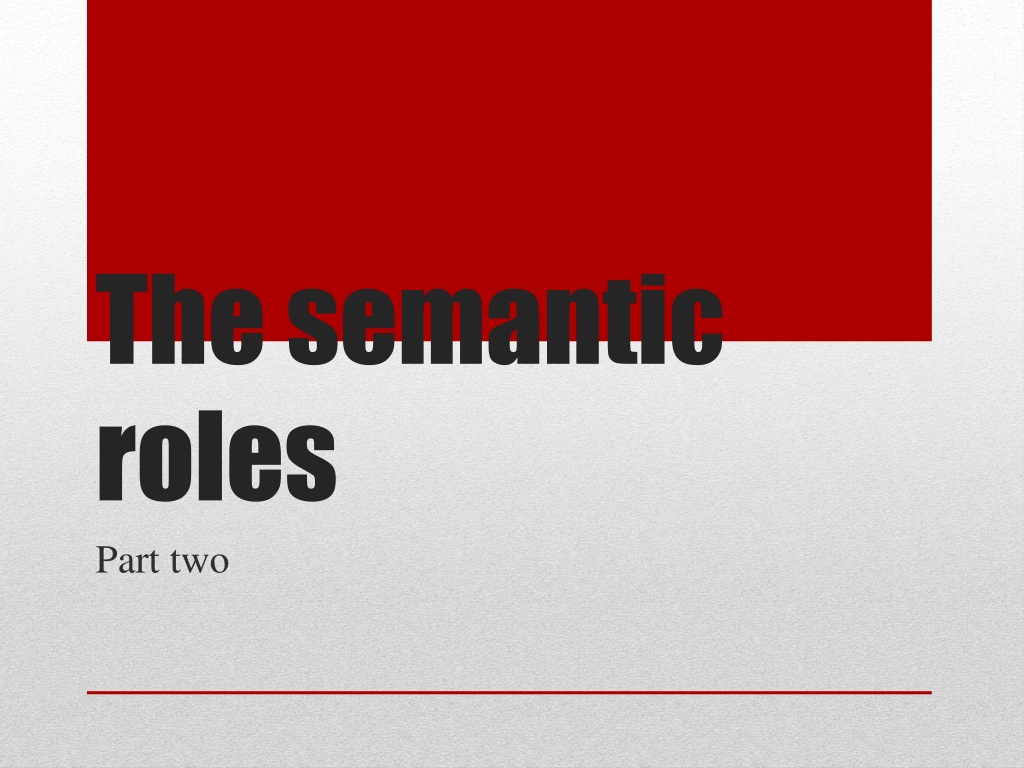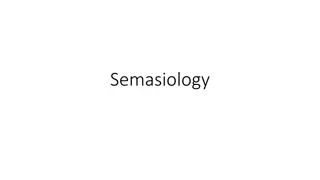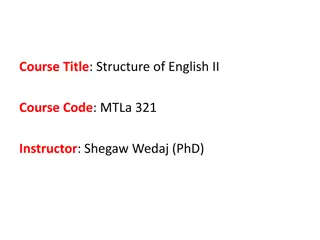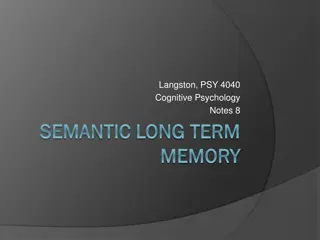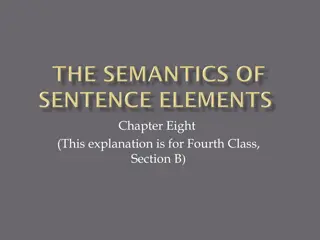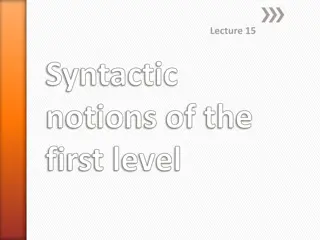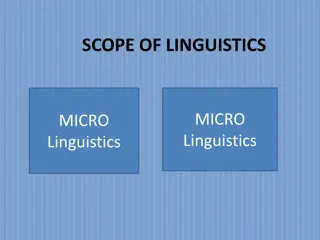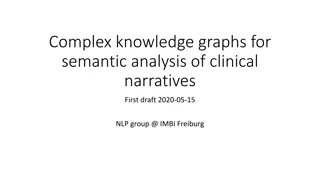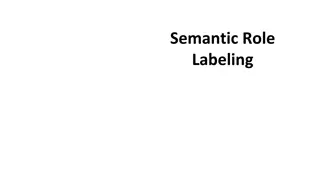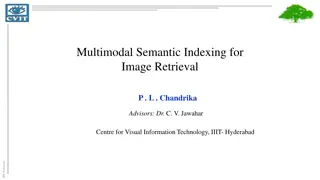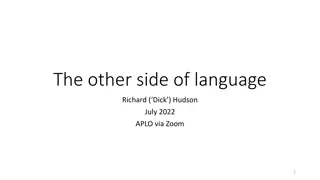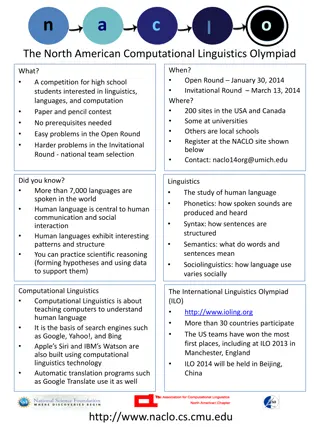Understanding Semantic Roles in Linguistics
Semantic roles, also known as theta roles, play a crucial part in understanding the relationships between participants and verbs in a sentence. They include agents, experiencers, causers, positioners, subject complements, and objects. Agents are typically the doers of actions, experiencers receive experiences, causers instigate events, positioners maintain a stationary stance, subject complements attribute qualities, and objects receive the action. Explore the intricacies of semantic roles for a deeper comprehension of language structures.
Download Presentation

Please find below an Image/Link to download the presentation.
The content on the website is provided AS IS for your information and personal use only. It may not be sold, licensed, or shared on other websites without obtaining consent from the author. Download presentation by click this link. If you encounter any issues during the download, it is possible that the publisher has removed the file from their server.
E N D
Presentation Transcript
The semantic roles Part two
A semantic relationship that a participant has with the main verb in a clause. ... Semantic role is the actual role a participant plays in some real or imagined situation, apart from the linguistic encoding of those situations. is the underlying role What is a semantic role?
An agent is usually the grammatical subject of theverb in an active clause. Aprototypicalagent is conscious, acts with volition (on purpose), and performs an action that has a physical, visible effect. It is the animate being that causes the action which is described by the verb.It can be a human being or an animate or even an insect: Ex: Mary washed all the dishes .He was chased bythe dog. The cat chased the rat. The earthworms made the land fertile Agent
Experiencer is thesemantic roleof an entity (orreferent) which receives accepts experiences, or undergoes the effect of an action: Normally an experiencer is an entity that receives a sensory impression, or in some other way is the locus of some event or activity that involves neither volition nor a change of state. He was scared. Lucretia saw the bicycle. It was Billwho smelled the bacon first. The explosion was heard byeveryone
Causer is thesemantic role of thereferent which instigates an event rather than actually doing it. The causer is usually the surfacesubjectof theverb in a sentence. Examples: (English) Petertripped John. External Causer
The animate being is known as a positioner when it is in a stationary situation or stance in such a way that no change takes place in its position during that situation: Ex: the gusets are staying in a hotel; My father lived in London for 10 years. positioner
The semantic role of the subject complement is the attribute She is a teacher We made him wise attribute
It is the animate or inanimate participant upon which lies the action(the object): She is eating a sandwichate affected
It is the thing that comes into existence because of the activity of the verb: She painted a picture (resultant) She painted the wall (affected) resultant
It refers to a an made events as opposed to external causers (forces of nature) The explosion killed five people. eventive
It is the referent of the indirect object. It is the person for whose benefit the action is performed. We gave him a new book. recipient
It is the intended recipient of the benefit of the action not the actual one.A beneficiary is thesemantic role of a referent which is advantaged or disadvantaged by an event. Examples: (English) John sold the car fora friend. Her father bought her a new car beneficiary
It is the thing by means of which the agent performs the action The policeman killed the robber with a pistol instrument
It refers to the place or position It is hot in Baghdad She is studying in Scotland locative
It refers to the time of the action She is happy today. temporal
Goal is thesemantic role of the: place to which something moves thing toward which an action is directed Examples: John swam tothe raft He threw the book atme goal
It is the starting point of a movement (towards the goal) The leaves fell from the tree source
